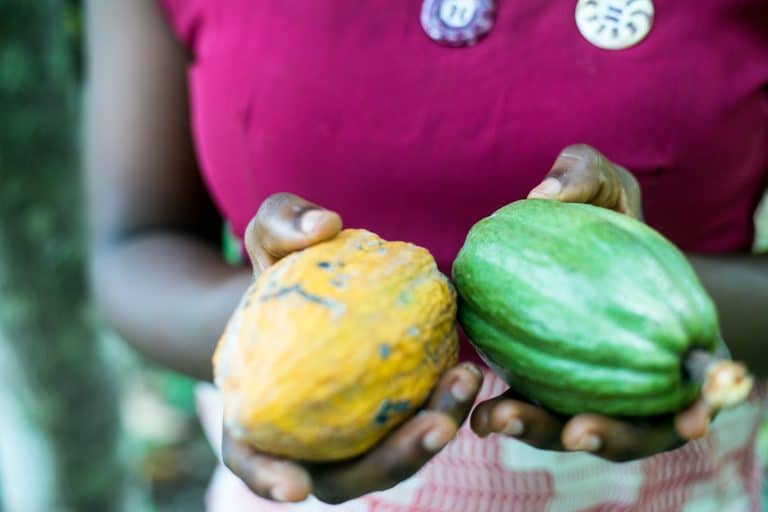The lush Caribbean island of Grenada is earning recognition for its impressive efforts to implement sustainable tourism practices.
Local farms, hotels, restaurants, and more are banding together to support the community and environment.
Agriculture Meets Tourism – Women Lead the Charge
Much of Grenada’s sustainability success is thanks to female leaders like Theresa Marryshow, president of the Grenada Network of Rural Women Producers. For the past decade, Marryshow and her network of over 50 female farmers and producers have been supplying fresh, organic produce to many of Grenada’s top hotels and restaurants.
The farm-to-table movement began with Sandals Grenada resort and has since expanded across the island. Travelers can now enjoy salad greens, tomatoes, mangoes, and more, grown steps away from their hotel kitchens. Visitors to Marryshow’s two-acre farm in St. David can even experience an immersive, farm-to-table meal themselves.
“Sustainability is becoming a bigger thing on the island,” says Tricia Simon of Grenada’s Agro-Tourism agency. Simon, a Grenadian living in Toronto, initially got stuck on the island during the pandemic but made the most of it by starting her own sustainable plantation – Mount Parnassus Plantation.
She then built a fully eco-friendly cottage on-site and listed it on Airbnb. “You have a lot of people, including those who came back to the island after the pandemic, who started getting into farming, into sustainability,” she explains.
Resorts Hop on Board
Other Grenada resorts are also doing their part, like Spice Island Beach Resort. They maintain an on-site garden that supplies fresh herbs and veggies to the kitchen, with excess crops even being turned into a signature house-made hot sauce.
Renegade Rum Distillery takes sustainability a step further by working with local farms to ethically produce its cane juice rum. “You have a lot of people, including those who came back to the island after the pandemic, who started getting into farming, into sustainability,” Simon explains.
CTO Conference Spotlights Efforts
This growing trend has positioned Grenada to host the 2024 Caribbean Tourism Organization‘s Sustainable Tourism Conference from April 22 to 24. The island’s lush and fertile landscape lends itself to crops like cacao, nutmeg, and bananas.
Locals boast that even the air here has its own unique, aromatic quality.
The CTO gathering will showcase Grenada’s sustainability success. Visitors can see the island’s eco-friendly approach themselves – whether touring farms for an authentic meal or staying at one of the eco resorts integrating community and ecology into the guest experience. The conference also gives attendees ideas to implement across the Caribbean.
Tips on How To Be an Eco-Friendly Traveler
Being an eco-friendly traveler is increasingly important in today’s world to preserve the beauty and integrity of our planet. Here are 10 tips on how you can travel more sustainably:
Reduce Carbon Footprint: Opt for transportation methods with lower environmental impact. Consider taking trains instead of planes for shorter distances, using public transport, or renting electric vehicles.
Choose Sustainable Accommodations: Look for hotels or lodgings that have certifications for sustainability. Many places now offer eco-friendly practices like solar power, water conservation methods, and recycling programs.
Limit Single-Use Plastics: Carry a reusable water bottle, coffee cup, and shopping bags. Many travel destinations have refill stations for water, helping to reduce plastic waste.
Support Local: Whether it’s dining at local restaurants, buying souvenirs from local artisans, or choosing local guides, supporting the local economy helps reduce carbon footprints and promotes sustainable tourism.
Respect Wildlife and Natural Habitats: Always maintain a respectful distance from wildlife and stay on designated paths during hikes and excursions to protect natural habitats.
Conserve Resources: Be mindful of your resource use, such as water and electricity, especially in areas where these may be scarce. Simple actions like turning off lights and taking shorter showers can make a difference.
Leave No Trace: Ensure you leave places as you found them or better. Dispose of waste properly, and if you encounter litter along your way, consider picking it up.
Educate Yourself: Before visiting a destination, learn about its culture, environment, and how you can visit responsibly. Awareness can significantly impact the choices you make during your travels.
Participate in Ecotourism: When possible, engage in tours and activities that are known to benefit the environment and the local communities.
Offset Your Carbon Emissions: For the unavoidable carbon footprint made by traveling, consider purchasing carbon offsets, which fund renewable energy and reforestation projects.


